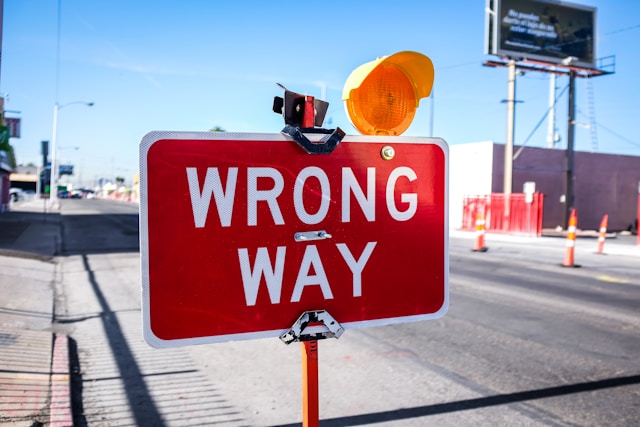Key Takeaways:
- Background checks are crucial for establishing trust and ensuring safety within the workplace.
- Legal compliance and ethical practices must be followed during background screening.
- Technological innovation is enhancing the efficiency and accuracy of background checks.
- The return on investment in background screening is significant when considering the potential risks associated with hiring.
- Maintaining a balance between thorough screening and respect for privacy is essential for employers.
Table of Contents:
- Introduction to Background Screening
- The Various Types of Background Checks
- Legal Considerations in Conducting Background Checks
- Enhancing the Hiring Process with Background Screening
- Maintaining a Safe Workplace Environment
- The Cost-Benefit Analysis of Background Checks
- Technology’s Role in Streamlining Background Checks
- Background Screening for the Gig Economy
- Best Practices for Employers When Screening Candidates
- The Future of Background Screening
Introduction to Background Screening
In the contemporary workforce, a safe and secure working environment is paramount. Employers across industries increasingly recognize that comprehensive background checks are essential in vetting applicants and protecting their organizations from potential liabilities. These preventative measures are vital in sectors where workers interact with vulnerable populations or handle sensitive information. As recruitment processes evolve in our digitized landscape, background screening remains one of the most reliable ways to corroborate a candidate’s history and credentials.
The shift towards a more interconnected, digital society has influenced how personal and professional information is stored and accessed. This change necessitates that background screenings adapt to ensure that they are thorough and respectful of individuals’ privacy and digital footprints. Despite these advancements, the core values behind background checks remain consistent: they are a tool for building integrity within the workforce and streamlining the recruitment process to align with a company’s mission and standards of professionalism.
The Various Types of Background Checks
In background screening, employers may utilize a broad spectrum of checks according to the specific demands of the position they seek to fill. These range from crime-related revelations emanating from criminal records, which can flag potential legal and safety risks, to employment history checks to validate the genuine professional experiences described by applicants. Credit checks, often required for positions requiring a high level of financial discretion, provide a window into a candidate’s fiscal responsibility and trustworthiness. On the other hand, educational verification ensures academic credentials are legitimate, while professional license verifications confirm the legal ability to offer certain professional services.
Diving deeper into these types, it is clear that each serves a particular purpose and, when used together, establishes a multi-faceted picture of an applicant’s suitability. Comprehensive background screening is not about finding imperfections in one’s past but rather about fostering transparency and making well-informed hiring decisions that contribute to a business’s long-term success and security.
Legal Considerations in Conducting Background Checks
Navigating the legal waters of background checks is a task that demands careful attention to detail and an understanding of the law. The Fair Credit Reporting Act (FCRA) is a federal legislation that establishes the standards for employment screening, protecting the privacy of job applicants and ensuring that the information used in the hiring decision-making process is accurate. Adhering carefully to these regulations is a matter of legal compliance and maintaining ethical hiring standards. This includes obtaining written consent from applicants before conducting the check and following proper adverse action procedures if the investigation results could influence the employment decision.
The federal guidelines set forth by institutions such as the Equal Employment Opportunity Commission (EEOC) reinforce the need for fairness and equality in hiring practices. Employers must conduct screens that ensure individuals are evaluated on their qualifications and experience rather than personal characteristics unrelated to job performance. The EEOC enforces laws prohibiting employment discrimination, and their documentation on enforcement and litigation data is a comprehensive resource highlighting the importance of non-discriminatory practices in background screening.
Enhancing the Hiring Process with Background Screening
The hiring process is a critical phase in a company’s operation, setting the stage for future productivity and growth. Background checks are instrumental in this process, providing essential information that informs hiring decisions and ensures the quality of new hires. By mitigating the risk of hiring individuals with histories incongruent with the role’s responsibilities, background checks serve as a first defense in protecting a company’s assets and personnel. Moreover, integrating these screenings with technological systems such as Applicant Tracking Systems (ATS) has simplified the vetting process, enabling quick, decisive action based on comprehensive data.
Focusing on the big picture, a meticulous approach to background screening can significantly enhance the hire’s quality, reducing turnover and increasing overall workforce productivity and morale. By being seen as an employer that prioritizes safety and integrity, organizations also boost their reputation in the eyes of current and prospective employees.
Maintaining a Safe Workplace Environment
The safety and well-being of employees is a paramount concern for conscientious employers, and background checks play an instrumental role in fostering a secure workplace. By conducting thorough screenings, employers can better prevent individuals who might pose a risk to others from joining their teams. This not only pertains to potential criminal elements but also to confirming the qualifications of individuals in roles that bear significant responsibility, such as those in the healthcare and financial fields. Periodic screenings after employment can also serve as an ongoing safety measure, helping to ensure that the workplace remains secure from internal threats over time.
The Cost-Benefit Analysis of Background Checks
There is a tangible value to investing in comprehensive background screening as part of the hiring process. The immediate costs of conducting such checks are often minimal compared to the potential financial and reputational damage resulting from inadequate vetting. Statistics and studies demonstrate that the consequences of hiring without thorough pre-employment checks include increased employee theft, fraud, and a higher likelihood of lawsuits stemming from negligent hiring practices.
Technology’s Role in Streamlining Background Checks
Modern technology has revolutionized the background screening process, with innovative solutions emerging to perform checks quickly and effectively while maintaining the strict standards set by privacy laws and ethical considerations. Employers can leverage automated systems to conduct comprehensive background screens with greater accuracy, speed, and cost-effectiveness today. Digital databases have broadened the scope of accessible information. At the same time, artificial intelligence (AI) and machine learning (ML) are being explored for their potential to refine further the efficiency of conducting background checks.
Background Screening for the Gig Economy
As the traditional employer-employee relationship evolves, the growing gig economy requires a fresh look at how background checks are administered. Gig workers, freelancers, and contractors are typically engaged on a short-term basis, which means the conventional background screening methods must adapt to reflect this flexible work style. Despite the transient nature of such roles, the value of a secure, trustworthy worker remains unchanged. Innovations in screening technology cater to this need for speed and flexibility, ensuring that safety and reliability stay within the wayside despite the accelerated pace of hiring in the gig sector.
Startups and other companies that engage gig workers must be able to quickly and effectively verify the credentials of their workforce. An informative discussion on this topic can be found in an article on TechCrunch, which delves into how startups are uniquely positioned to hire gig workers, emphasizing the importance of adaptable background screening processes within this burgeoning sector.
Best Practices for Employers When Screening Candidates
Employers must use diligent and fair background screening methods. This process involves technical and legal aspects and ethical considerations centered around treating candidates’ personal information. Employers should strive to blend meticulousness with compassion, fair treatment, and transparency to maintain a balance that helps protect both the company’s interests and the privacy of the individuals being screened. Detailed policies outlining the scope and purpose of screenings, combined with consistent communication about these policies, contribute to a thorough, fair, and respectful process for all involved.
The Future of Background Screening
As technology advances and globalization accelerates, the future of background screening is likely to be marked by even greater integration into the hiring process. Automation and AI are expected to refine these systems, making them more seamless and secure. The increasing sensitivity around personal data and the heightened regulations, such as GDPR in Europe and CCPA in California, underline the future trajectory of screening processes. Employers and service providers alike must stay abreast of these trends to ensure compliance and maintain the trust of both employees and customers.




